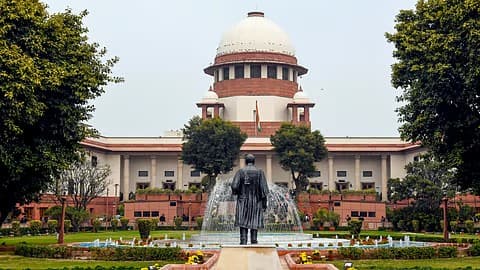
India’s Supreme Court Bars Investigating Agencies From Summoning Lawyers Over Client Advice
Top court clarifies that only in rare cases under Section 132 of the Bharatiya Sakshya Adhiniyam can advocates be questioned; ED summons set aside.
The Supreme Court on Friday ruled that investigating agencies such as the Enforcement Directorate (ED) cannot ordinarily summon lawyers in connection with advice provided to their clients, except in exceptional cases as defined under Section 132 of the Bharatiya Sakshya Adhiniyam, 2023 (BSA).
A Bench comprising Chief Justice of India BR Gavai and Justices K. Vinod Chandran and N.V. Anjaria emphasised that lawyers enjoy protection from disclosing confidential communications with their clients, a principle enshrined in Section 132 of the BSA. The provision, however, allows limited exceptions -- such as when legal advice is sought for illegal purposes, or if a lawyer becomes aware of a crime or fraud.
“We have harmonised the evidence and procedural rules. Investigating officers shall not issue summons to lawyers representing accused persons unless the summons explicitly state the exception under Section 132 that applies,” the Court said.
The Bench also issued guidelines to ensure the protection of digital devices seized from lawyers, directing that such devices must be produced before the jurisdictional criminal court and accessed only in the presence of the concerned lawyer and other parties.
“Production of digital devices under BNSS shall be only before a jurisdictional court. The devices shall be opened only in the presence of the lawyer and the parties,” the Court noted.
The judgment came in a suo motu case initiated by the Supreme Court following widespread concern over the ED’s decision to summon Senior Advocates Arvind Datar and Pratap Venugopal. The summons were linked to an investigation into the issuance of Employee Stock Option Plans (ESOPs) worth over ₹250 crore by Care Health Insurance to former Religare Enterprises chairperson Rashmi Saluja.
Datar had provided a legal opinion supporting the ESOP issuance, while Venugopal was the advocate-on-record in the matter. Following backlash from the legal fraternity, the ED withdrew the summons.
Attorney General R. Venkataramani told the Court that he had immediately advised the ED that its actions were improper. Solicitor General Tushar Mehta also agreed that lawyers cannot be summoned for providing professional legal advice but cautioned against misinterpreting judicial remarks as institutional criticism.
Setting aside the ED summons, the Court observed that such actions could infringe on the fundamental rights of the accused and undermine the sanctity of lawyer-client confidentiality.
For any enquiries please fill out this form, or contact info@thelawreporters.com and Follow The Law Reporters on WhatsApp Channels